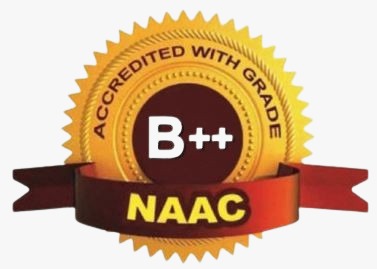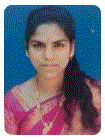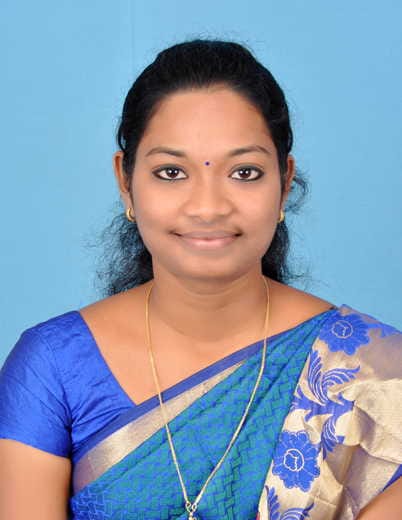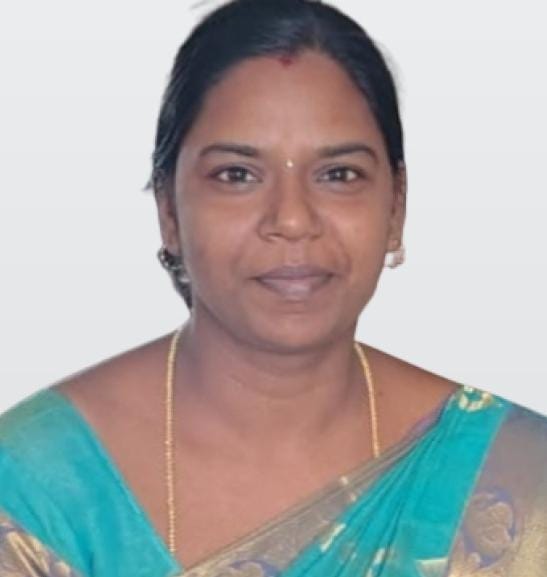Information Technology
DEPARTMENT OF INFORMATION TECHNOLOGY
Course Description
The Department of Information Technology was established in the year 2023 with an intake of 60 students. This Programme B. Tech (Information Technology) is offered as a four years full time Under Graduate (UG) programme for the students. B. Tech (IT) is recognized as the world wide emerging area of today’s engineering and technology world and was listed in the AICTE (All India Council for Technical Education).
Brilliant faculty is strengthened through qualification improvement programs, human resources in the form of trained supporting staff, all round quality development programs and operating systems for improving upon the functional effectiveness of the department. The Department has well-qualified faculty members with various specializations relevant to the industry.A wide range of activities undertaken in the department allow the students to gain contemporary knowledge of the basic problems in the IT industry.
The department provides a top-notch learning environment with a group of faculty members who are well equipped to motivate students to advance their technical knowledge and create a spirit of teamwork. The strength of the department is largely contributed by a team of dedicated, qualified and experienced faculty member who are specialized in various fields. The research activities of the department are promoted by well qualified faculty members. The research promotion of the department is evidenced by a number of research paper published in high reputed journals. Beside the regular classroom lectures the students are given laboratory exercise to acquire practical skill and computing capabilities.
Vision:
To afford value-based Engineering education in Information Technology; enhance the student community with innovative and accessible technology to meet the global challenges as IT professionals
Mission:
• To impart excellent academic, and technology solutions and support to improve learning, research, and administrative skills
• To inculcate high ethical values in society through student-centric learning approaches.
PEO (PROGRAM EDUCATIONAL OBJECTIVE)
1. Demonstrate technical competence with analytical and critical thinking to understand and meet the diversified requirements of industry, academia, and research.
2. Exhibit technical leadership, team skills, and entrepreneurship skills to provide business solutions to real-world problems.
3. Work in multi-disciplinary industries with social and environmental responsibility, work ethics, and adaptability to address complex engineering and social problems.
4. Pursue lifelong learning, use cutting-edge technologies, and involve in applied research to design optimal solutions.
PSO (PROGRAM SPECIFIC OUTCOME)
Students will
1. Engage in lifelong learning strategies to stay updated with emerging technologies and industry trends.
2. Possess the knowledge to design, automate, and manage business solutions utilizing the latest technologies.
Course Outcomes
| Regulation-2021-UG | |||
|---|---|---|---|
| YEAR /SEMESTER:II/III | |||
| C301-MA3301-FOURIER SERIES AND LINEAR PROGRAMMING | |||
| C301.1 | Apply Fourier series techniques used in wide variety of situations in which the functions used are not periodic and to solve boundary value problems. | ||
| C301.2 | Apply the Fourier transform techniques to solve boundary value problems. | ||
| C301.3 | Develop a fundamental understanding of linear programming models, able to develop a linear programming model from problem description, apply the Simplex method for solving linear programming problems. | ||
| C301.4 | Analyze the concept of developing, formulating, modeling and solving transportation and assignment problems. | ||
| C301.5 | Determine the optimum solution for non-linear programming problems. | ||
PROGRAMME OUTCOMES (POs)
Po Graduate Attribute
1. Engineering Knowledge: Apply the knowledge of mathematics, science, engineering fundamentals, and an engineering specialization to the solution of complex engineering problems.
2. Problem Analysis: Identify, formulate, review research literature, and analyse complex engineering problems reaching substantiated conclusions using first principles of mathematics, natural sciences, and engineering sciences.
3. Design/ Development of Solutions: Ability to design an irrigation system to meet the desired needs within realistic Constraints such as economic, environmental, social, political, ethical, and sustainability considerations.
4. Conduct Investigations of Complex Problems: Ability to think creatively, to formulate problem statements, to communicate effectively, to synthesize information, and to evaluate agricultural systems.
5. Modern Tool Usage: Ability to function in interdisciplinary teams within the Institute and also with other organizations at National/ International level while planning the research projects.
6. The Engineer and Society: Ability to use the techniques, skills and modern engineering tools necessary for Agricultural engineering practice.
7. Environment and Sustainability: Will develop competencies in computer and automatic control systems, information systems, mechanical systems, natural resource systems to solve engineering problems.
8. Ethics: Graduates will be able to express themselves clearly in oral and verbal communication needs.
9. Individual and Team Work: Ability to devise a strategy or action plan to utilize the acquired knowledge in increasing water-use efficiency, farm mechanization and Post harvest technology etc.
10. Communication: Graduates will be capable of self-education in emerging problems and understand the value of lifelong learning in Food Technology, Farm Machinery and Food Processing.
11. Project Management and Finance: Demonstrate knowledge and understanding of the engineering and management principles and apply these to one’s own work, as a member and leader in a team, to manage projects and in multidisciplinary environments.
12. Life-long Learning: Recognize the need for, and have the preparation and ability to engage in independent and life-long learning in the broadest context of technological change.
Faculty List
| Information Technology |
|---|
Curriculum Details
| S.NO | Regulation | File |
|---|---|---|
| 1. | B.Tech.IT-R2021 | Click here |
Value Added Courses
ACADEMIC YEAR 2024-2025
| S.No | Name of the course | No of students | Duration(hours) |
|---|---|---|---|
| 1 | AFFECTIVE COMPUTING | 56 | 34 |
ACADEMIC YEAR 2025-2026
| S.No | Name of the course | No of students | Duration(hours) |
|---|---|---|---|
| 1 | SOCIAL MEDIA PRIVACY | 54 | 30 |
| 2 | EDGE COMPUTING | 63 | 63 |
Innovative Teaching
Innovative teaching embodies a proactive approach aimed at seamlessly integrating cutting-edge teaching strategies and methods, widely acknowledged as a fundamental avenue for attaining a competitive advantage.
• Embracing Innovative Teaching Approaches: Proactively integrating novel teaching strategies and methodologies is a recognized method for gaining a competitive edge in education.
• Leveraging Technology-Enhanced Learning: Faculty effectively utilizes advanced ICT-based teaching tools, including smart classrooms and LCD projectors, to enhance the learning experience and contribute to students' academic improvement.
• Enabling Blended Learning Environments: Our Wi-Fi-enabled campus fosters blended learning, offering access to e-learning websites and resources that complement traditional classroom instruction.
• Utilizing Google Classroom Integration: We employ Google Classroom, an application designed to enhance the learning journey. It facilitates interactive engagement with students through the sharing of technical content, lecture notes, and assignments.
• Promoting Continuous Learning: Both faculty members and students engage in online courses offered by NPTEL within their areas of interest. This practice allows them to stay updated on current trends and develop expertise across multiple domains.
• Enriching Learning Through Webinars: Engaging webinars complement conventional classroom teaching, serving as an effective medium for knowledge transfer and interactive learning experiences.
• Encouraging Professional Development: Faculty members are actively encouraged to participate in Faculty Development Programs (FDPs), short-term courses, and staff development initiatives on advanced topics. This ensures that they remain well-equipped with the latest knowledge and skills.
Laboratory Details
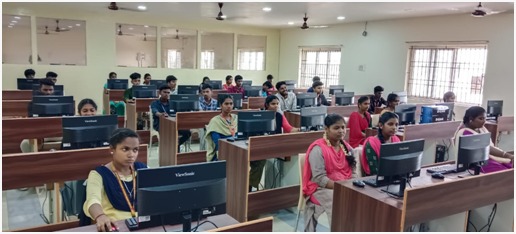
Information Technology Laboratory 1
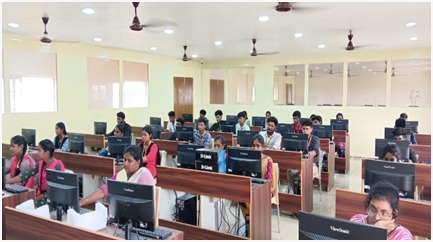
Information Technology Laboratory 2
Event Details
| S.NO | EVENTS TITLE | Link(s) |
|---|---|---|
| 1 | Teachers’ Day Celebration Report | VIEW |
Magazine & Newsletter Details :
| S No. | Name of the Newsletter / Magazine | File |
|---|---|---|
| 1. | News Letter / Magazine - (2025-2026 ODD SEM) | Click here |

